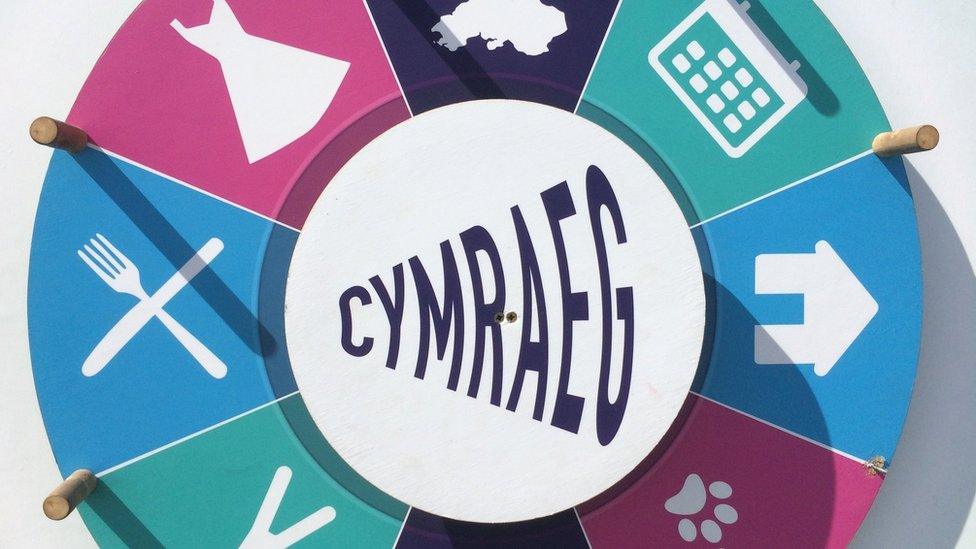Down's syndrome no bar to bilingualism, study suggests
- Published
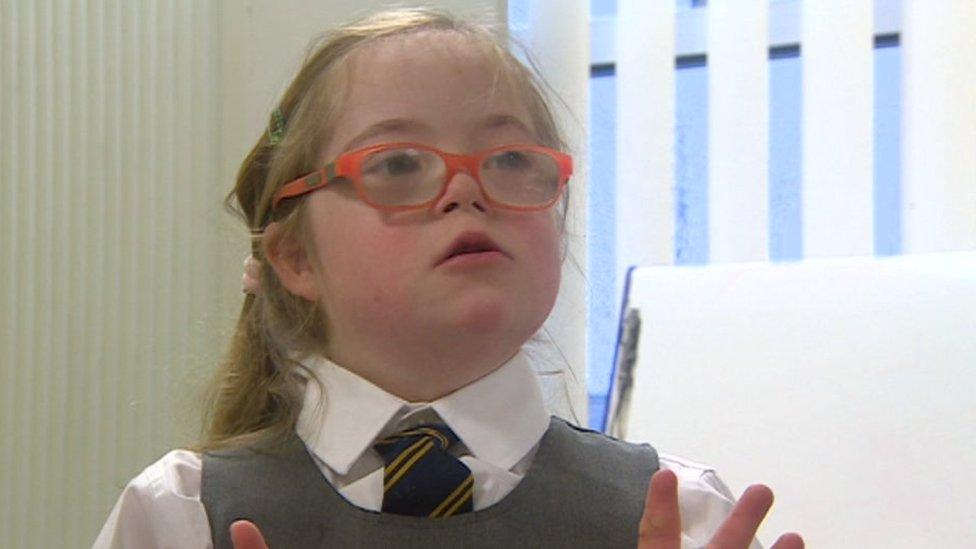
Elinor's family wanted more information about Down's syndrome bilingualism when she was born
Raising children with Down's syndrome bilingually does not put them at a disadvantage, despite concerns it leads to language delays, a study says.
The small-scale research by Bangor University compared the development of children with Down's syndrome who speak Welsh and English and those living in English-only homes.
Its initial conclusions suggested their English skills were at a similar level.
Researchers said the research may be relevant to other languages too.
The researchers spoke to 32 families who have a child with Down's syndrome - 14 spoke English and Welsh while the remainder spoke English only.
Meet the girl with Down's syndrome who can speak Welsh and English
'Soul-searching'
Ben and Natalie Curtis, who took part, said they would have liked more information when their daughter Elinor was a baby and they were researching bilingualism for children with learning difficulties.
Six-year-old Elinor has Down's syndrome and goes to a Welsh language school near the family in Hengoed, Caerphilly county, along with her four-year-old brother Arthur.
Mrs Curtis said they had always assumed any children they had would go to a Welsh-medium school, "so when Elinor was born with learning disabilities we didn't know how that impacted on it".
"We did a bit of thinking and a bit of soul-searching about it," she added. "We decided we wanted to give her the chance to learn both languages."
Mr Curtis said some people have queried the decision to raise their daughter bilingually.
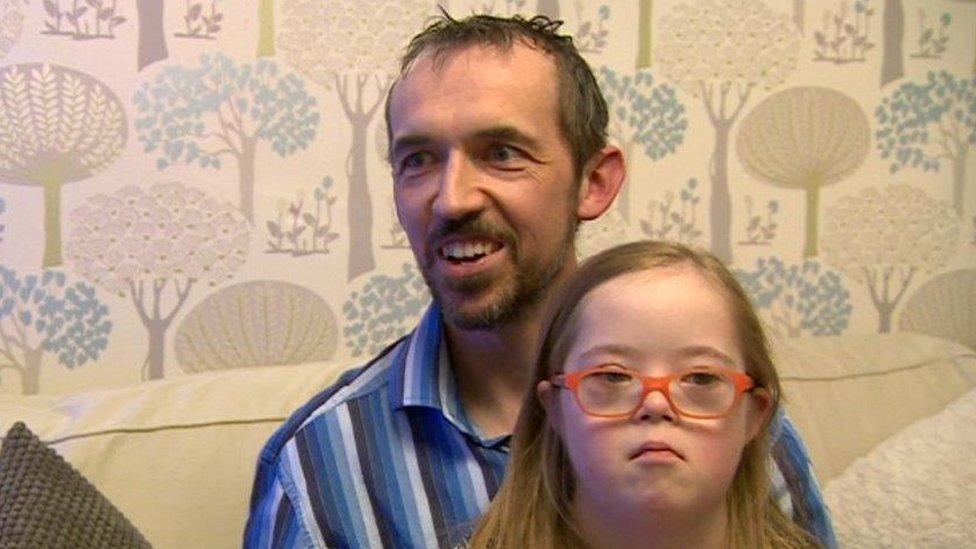
Ben Curtis speaks Welsh to Elinor and her brother, while his wife only speaks English
He said: "We wanted to ensure that whatever else happened we weren't the people who were in effect placing limitations upon Elinor by ourselves deciding that she wasn't capable of, in this case speaking Welsh, without giving her the opportunity to prove that she can do. And she most certainly can."
Bangor university academic Rebecca Ward said it was the first research of its type in the UK.
"Generally children with Down's syndrome tend to have difficulty with language so this seems to have led to the belief that speaking two languages would then be too difficult or would cause confusion or result in further language delays," she said.
"What we're finding is that children who are bilingual with Down's syndrome aren't at any disadvantage from being exposed to a second language."
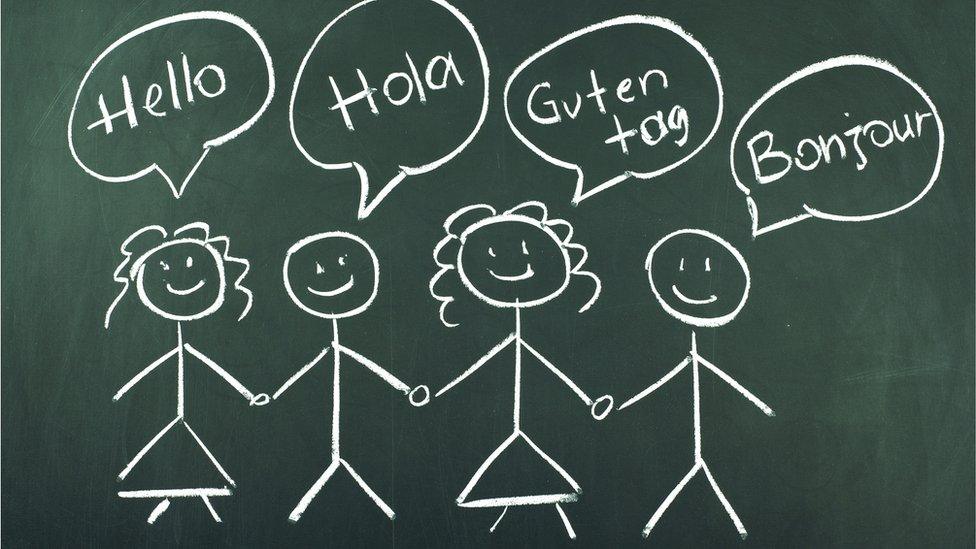
Academic Rebecca Ward said the research could be relevant to other languages
The Down's Syndrome Association said sometimes professionals were hesitant about the advice they gave and that any approach should respond to the individual family's needs.
It said: "This small-scale research project will hopefully shed new light on what families' experiences are and give encouragement to others to pursue bilingualism if that is their preference."
Mrs Curtis said she was happy they made the right decision for their family.
"It would have been nice to have had more evidence at the beginning that were doing the right thing rather than just a gut feeling," she added.
"But it's worked out okay."
- Published27 April 2018
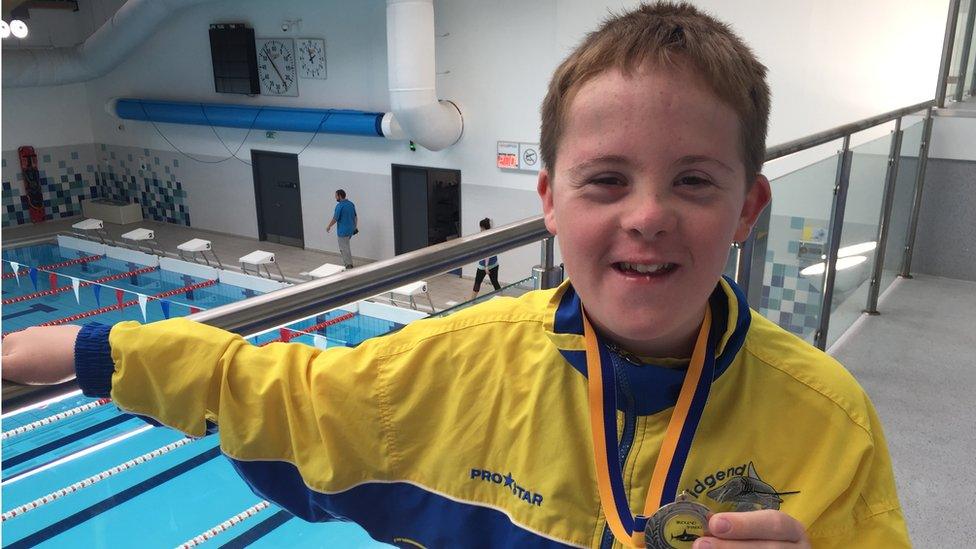
- Published29 September 2016
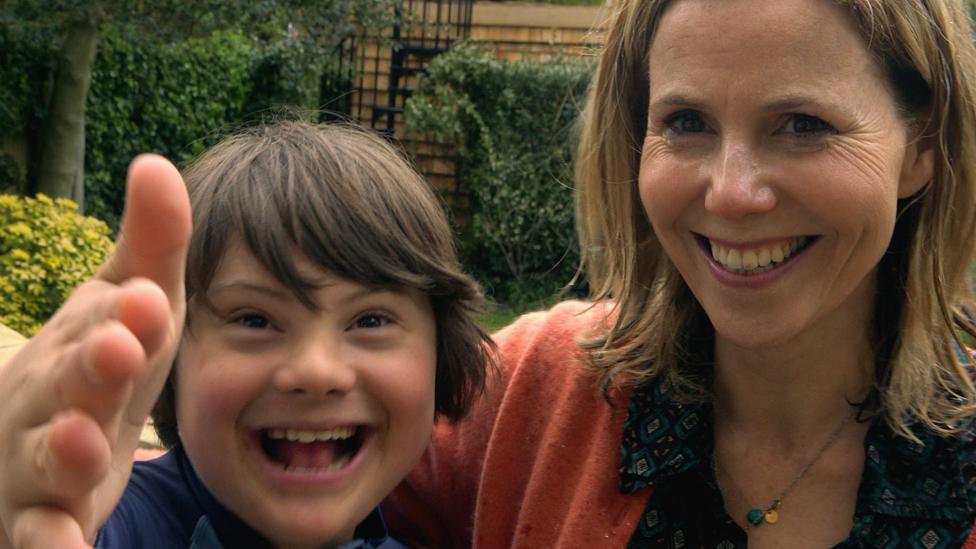
- Published27 April 2018
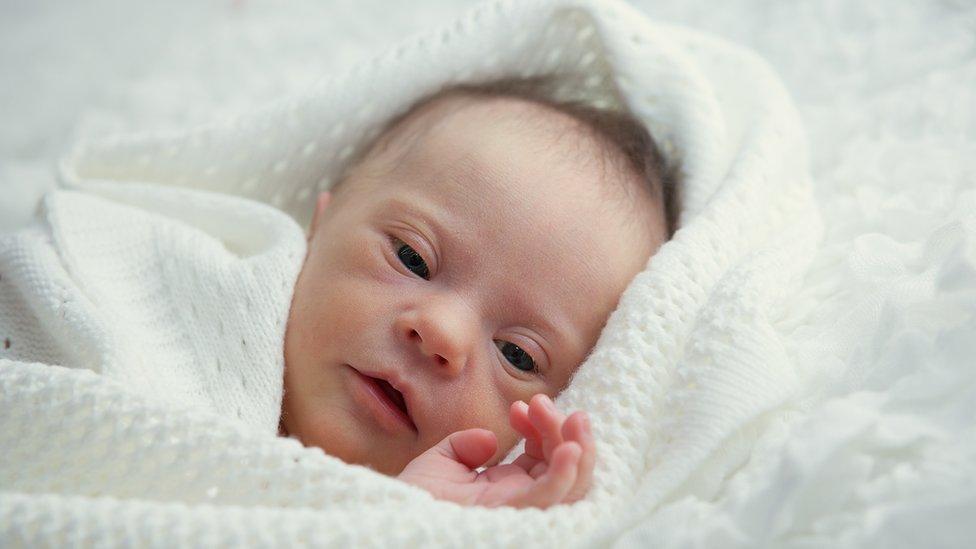
- Published27 February 2018

- Published5 June 2018
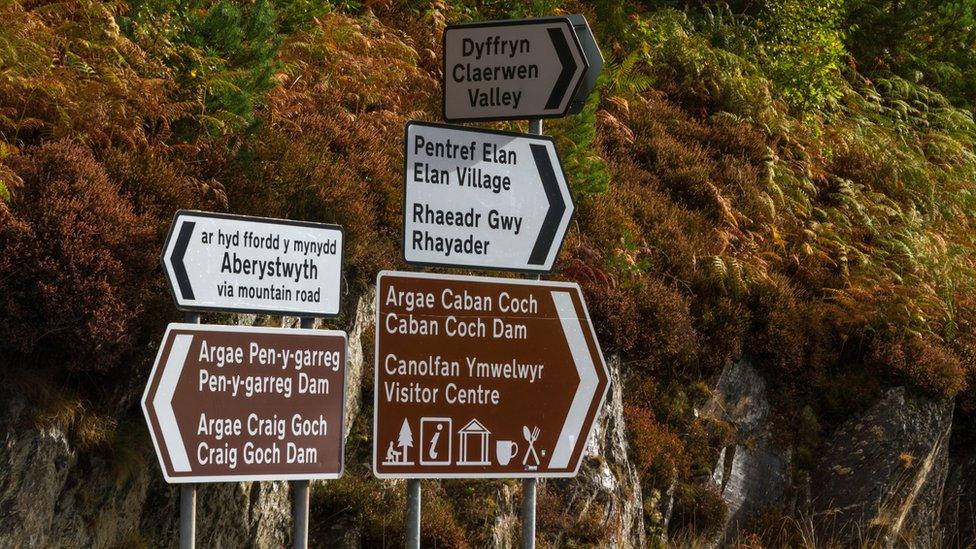
- Published11 July 2017
